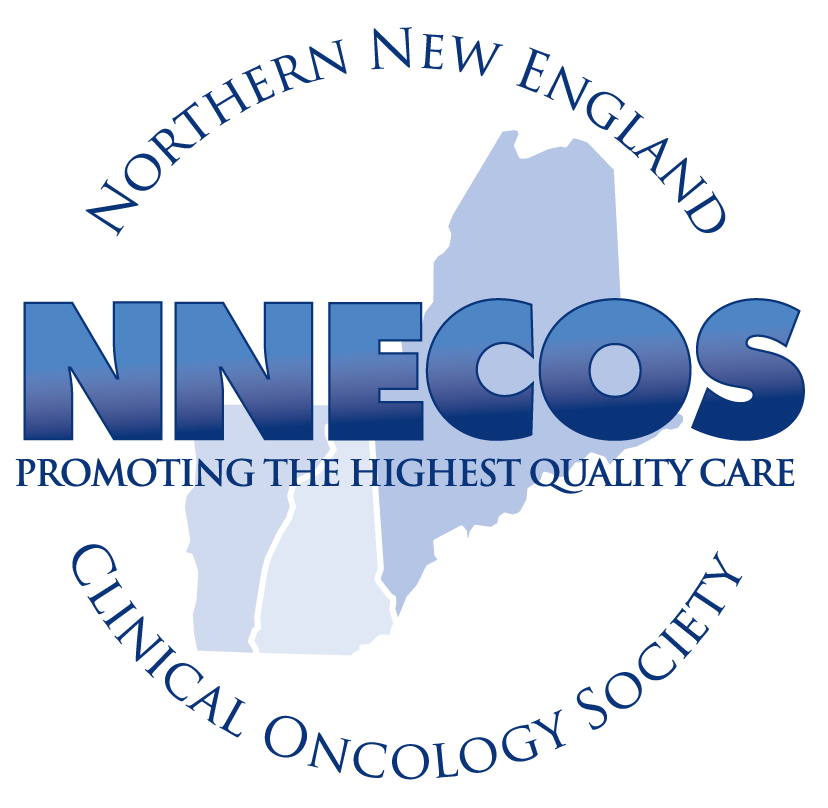History of the Northern New England Clinical Oncology Society
In 1990 Dr. A. Collier Smyth of New Hampshire and Dr. Ronald Carroll of Maine began initial activities to start a regional clinical oncology society in the three northern New England states, Maine, New Hampshire and Vermont. The regional model was selected because each of the three states individually had only a small number of oncologists in clinical practice. With the three states combined there were about thirty oncologists, exclusive of those in academic practice. By-laws were written and NNECOS was incorporated in New Hampshire on December 13, 1990.
Representing Northern New England
Formed to promote the quality and accessibility of clinical oncology care in Northern New England, NNECOS immediately became the representative organization to the Medicare Regional Carrier Advisory Committee, to the American Society of Clinical Oncology’s Clinical Practice Committee, and to the Association of Community Cancer Centers’ Presidents’ Retreat . Providing representation to these organizations dominated NNECOS activities for about its first ten years. NNECOS’ original bylaws required face to face meetings of the Board of Directors in order to take any action, a task made difficult by the mountainous geography of Northern New England . This restriction limited the effectiveness of the Board of Directors and severely hampered the ability of NNECOS to undertake additional activities.
NNECOS into the 21st Century
In 2000, the NNECOS Board rewrote the bylaws, allowing for telephonic meetings of the Board and a single face to face Annual Meeting. NNECOS membership now includes community and academic oncologists as active members, as well as allied health professionals including oncology nurses, practitioners, and practice managers as associate members.Tri-State Leadership
The Presidency is rotated among the three states and has been held by both community and academic oncologists, recognizing our common interest in the delivery of high quality cancer care in our region. Many members of NNECOS have been involved in leadership positions in ASCO, allowing NNECOS to influence the national and international course of cancer research and treatment. Additionally our members have benefited from ready access to developments in the political arena which have such a profound influence on our ability to care for our patients. The administrative functions of NNECOS have also been strengthened through the appointment of an Executive Director.NNECOS Continues to Grow
The combination of these factors has resulted in growth and progress in NNECOS’ ability to meet its Mission and Vision. NNECOS Annual Meetings are increasing in attendance, providing an opportunity for Continuing Medical Education from nationally known speakers and a chance to socialize with old and new friends and colleagues. The Northern New England states remain beautiful places to live, and the future of the Northern New England Clinical Oncology Society is strong.
Denis B. Hammond, MD

